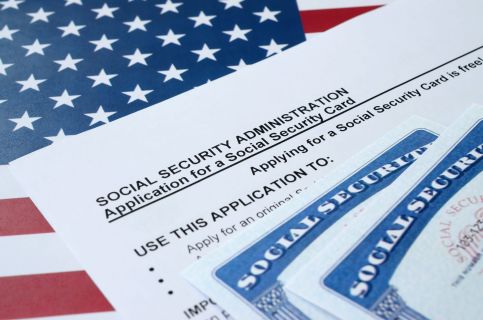Justice Department Settles With Donut Shop Franchisee for Form I-9 Violations

The Department of Justice recently stated that it had arrived at a settlement with a corporation in a case involving a claim of discrimination against a worker that is a legal permanent resident. The company discriminated against the worker by not letting them present the valid documentation they wanted as proof of authorization to work. The worker wanted to use an unrestricted Social Security card and a valid driver’s license as proof of authorization to work in this country.
The worker tried to resolve this problem by calling the Immigrant and Employee’s Rights (IER) section of the Civil Rights Division’s hotline. This hotline tries to assist employees and employers through information and help in an attempt to prevent discrimination. The IER also tries to informally resolve immigration-related employment problems when a worker asks for this service.
The worker requested the IER’s help, and a lawyer from the IER called the company to explain some information that could have resolved the situation and allowed the worker to start working. However, the employer would not accept the driver’s license and Social Security card and instead insisted that he needed the worker to present an unexpired permanent resident card.
The Justice Department found that the donut company had violated the Immigration and Nationality Act’s anti-discrimination provision by not accepting the worker’s valid work documentation, insisting on specific documentation, and delaying the worker’s employment due to their immigration status. The department also found that the company thought the worker needed to show an unexpired permanent resident card partially because of the requirements of E-verify.
The Justice Department will be working with the donut company to make sure it does not violate anti-discrimination laws in the future. Individuals are allowed to choose which documents they want to use to confirm their identity and authorization to work as long as the documents are legally acceptable. Employers are not allowed to limit the employee’s choice of documents or request more documents than necessary because of the employee’s national origin, citizenship, or immigration status.
The donut company agreed to a settlement that required them to pay the United States a civil penalty in addition to paying the worker in the case back pay. The donut company will also be required to train its employees about the requirements of the Immigration and Nationality Act. This training will include a training session given by the IER. The donut company will also be monitored for three years to make sure it complies with the agreement.
As this case demonstrates, completing the employment eligibility process and complying with the requirements can be confusing. It is easy to make costly mistakes because hiring personnel do not understand the requirements. However, these problems can be avoided with an electronic I-9 management tool that offers E-Verify integration. This can guide employers through the employment verification process and ensure hiring personnel know which documents are suitable to prove work authorization.